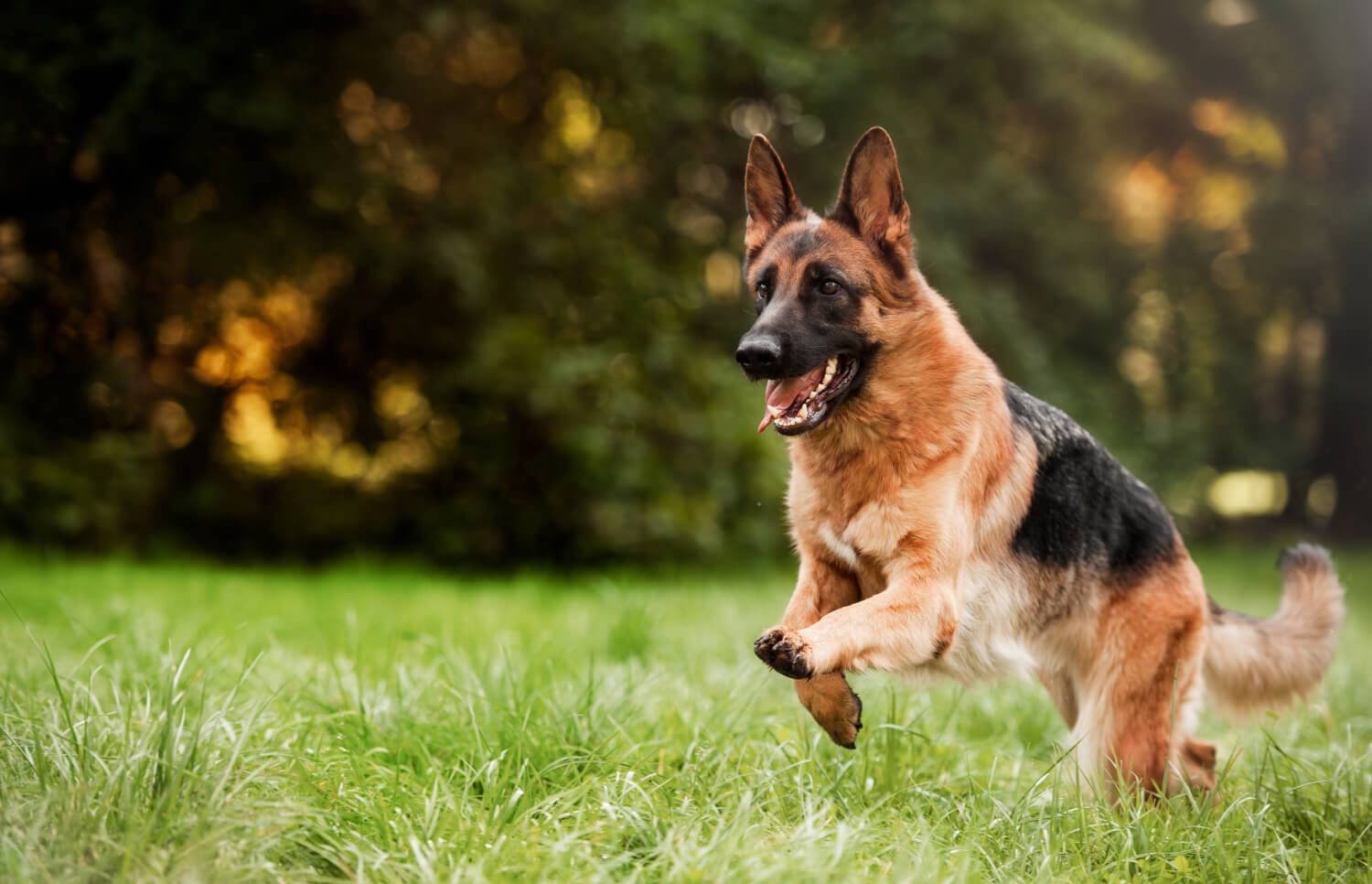






German Shepherds are highly intelligent, loyal, and versatile dogs, making them one of the most popular breeds worldwide. They are known for their protective instincts, strong work ethic, and deep bond with their owners. However, their intelligence and energy levels can also present behavioral challenges if not properly managed.
For new owners, understanding German Shepherd behavior is key to ensuring a well-balanced, obedient, and happy dog. This guide explores their natural temperament, common behavioral traits, and training tips to help you navigate life with your German Shepherd.

German Shepherds are bred to be working dogs, excelling in roles such as police work, search-and-rescue, military service, and family guardians. Their natural temperament includes:
✔ Loyal & Protective – German Shepherds form strong bonds with their owners and are naturally wary of strangers. This makes them excellent guard dogs, but early socialization is crucial to prevent overprotectiveness.
✔ Highly Intelligent & Trainable – They rank among the top three smartest dog breeds, meaning they can quickly learn commands, problem-solve, and adapt to various environments.
✔ Energetic & Playful – As a high-energy breed, German Shepherds need daily physical and mental stimulation to prevent boredom and destructive behaviors.
✔ Affectionate & Family-Oriented – Despite their serious reputation, they are loving companions that thrive on human interaction and dislike being left alone for long periods.
✔ Strong Work Drive – German Shepherds have a natural desire to work, meaning they excel in obedience training, agility, and advanced tasks.
While these traits make German Shepherds wonderful companions, they also require firm leadership, structure, and proper training from an early age.
German Shepherds are naturally protective of their family and territory. While this makes them excellent guard dogs, they need to be taught how to differentiate between real threats and normal social interactions.
How to Manage:
✔ A well-socialized German Shepherd will be confident yet not aggressive toward non-threatening strangers.

German Shepherds are extremely loyal and attached to their owners, making them prone to separation anxiety if left alone for long periods. Signs include:
✔ Excessive barking or howling when left alone.
✔ Destructive behavior (chewing furniture, digging).
✔ Pacing or restlessness when you’re about to leave.
How to Manage:
✔ A well-adjusted German Shepherd can stay home alone for reasonable periods without stress.
German Shepherds are a high-energy breed that requires daily exercise and mental stimulation. Without it, they may become restless, destructive, or develop bad habits like excessive barking or chewing.
How to Manage:
✔ A tired German Shepherd is a well-behaved German Shepherd.
German Shepherds have a natural prey drive, which means they might chase small animals, bicycles, or even running children.
How to Manage:
✔ With proper training, a German Shepherd can learn to ignore distractions and focus on commands.

As herding dogs, German Shepherds use their mouths a lot—this may result in nipping, biting, or grabbing objects with their mouth, especially as puppies.
How to Manage:
✔ Consistent redirection helps German Shepherds learn proper mouth control.
Since German Shepherds are highly trainable, they respond well to structured, reward-based training methods.
Training should start as early as 8 weeks old and should include:
✔ Sit, Stay, Come, Down, Leave It, Heel (foundation commands).
✔ Positive reinforcement (treats, praise, play) to reward good behavior.
✔ Short, fun training sessions (10-15 minutes) for better focus.
✔ A well-trained German Shepherd is confident, obedient, and responsive to commands.
German Shepherds are strong and powerful, making leash training a priority to prevent pulling.
Training Tips:
✔ With consistent leash training, your German Shepherd will walk politely without pulling.

Crate training helps with housebreaking, separation anxiety, and providing a safe space.
Steps for Crate Training:
✔ A crate-trained German Shepherd sees their crate as a “den” rather than confinement.
🐾 Excessive Barking – Teach “quiet” command and only reinforce barking when appropriate.
🐾 Chewing Destruction – Provide plenty of chew toys and use deterrents for off-limits objects.
🐾 Aggression Towards Other Dogs – Early socialization and controlled exposure to friendly dogs.
🐾 Digging – Provide a designated digging area or increase exercise to reduce excess energy.
🐾 Jumping on People – Ignore jumping behavior and reward calm greetings instead.

Read More : The Comprehensive German Shepherd Care Guide: Everything You Need to Know
Why Choose Human Grade Pet Food? Benefits of Subscription Service for Dogs & Cats
German Shepherds are highly intelligent, loyal, and trainable, but they require consistent guidance, socialization, and structured training to develop good behavior. By understanding their natural instincts, energy levels, and unique traits, you can ensure they grow into a well-mannered, confident, and loving companion.
With patience, proper training, and positive reinforcement, your German Shepherd will thrive as a trustworthy and well-behaved member of your family.
No, but they can be protective and territorial without proper socialization.
They are a high-energy breed that needs daily physical & mental exercise.
Teach a “quiet” command and avoid rewarding unwanted barking.
Yes, with early socialization and training, they can get along with other pets.
Regular exercise, mental stimulation, and training routines help manage energy.




